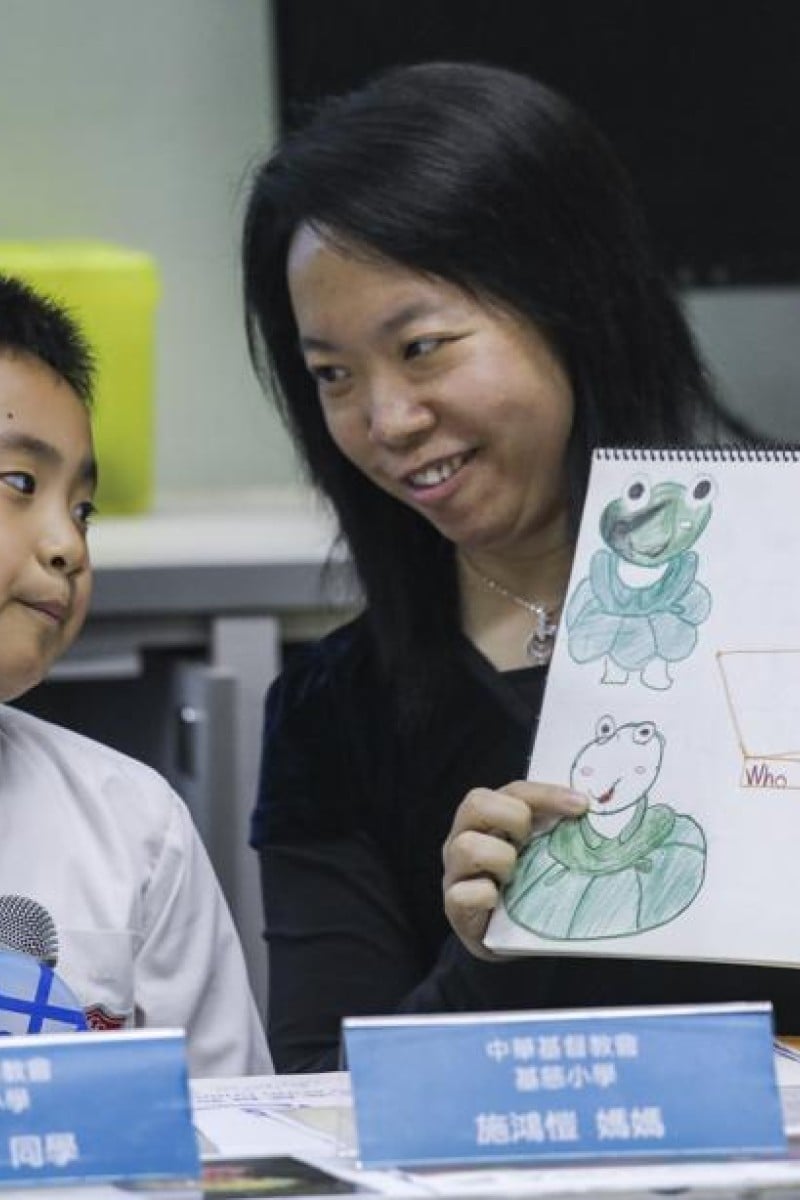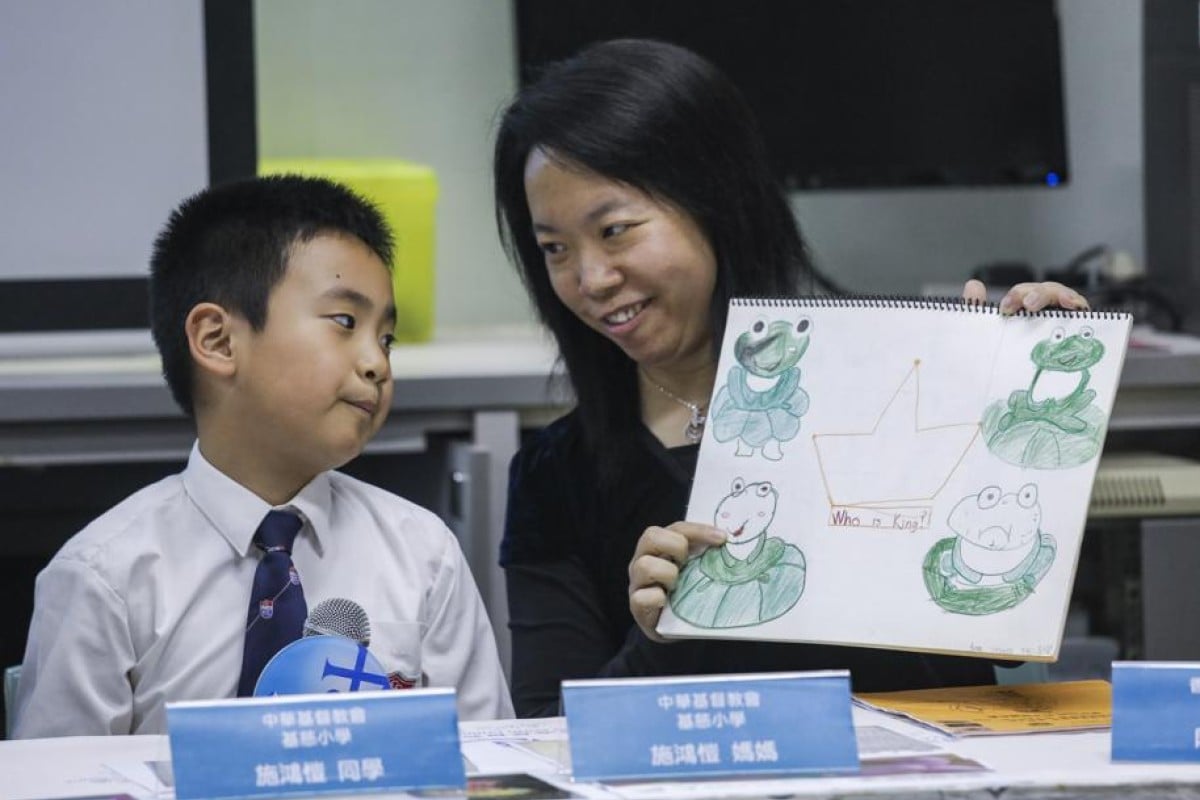
Students say they felt they were learning better after a break during which they did things other than homework
 Pupil King Sze and Charlie Chan at a press conference on a two-year trial on how long holidays without homework effectively raised students’ learning capabilities.
Pupil King Sze and Charlie Chan at a press conference on a two-year trial on how long holidays without homework effectively raised students’ learning capabilities. Giving students a homework-free long holiday to allow them to do their own learning would help them become more confident in their learning abilities and life management skills, a Hong Kong study released on Wednesday has found.
Conducted by the Hong Kong Christian Service and Baptist University, the study looked at how 806 students from four schools who took part in a no-homework programme assessed their academic competency and capacity to manage everyday life before and after the Easter holidays this year.
The results were analysed alongside a control group of 619 students from two schools, who were assigned homework.
Top 4 cloud storage options to make studying, learning, and organising your work easier
Students who took part in the programme for the first time – 542 of them – gave themselves an average score of 3.46 on a five-point scale for their academic competence after the holidays, up from 3.35 before the break.
In contrast, those in the control group gave themselves an average of 3.34, which was slightly lower than 3.35 before the holidays, which typically lasts around 10 days for schoolchildren in Hong Kong.
“A rubber band will break if you stretch it too far,” said Wong Kwun-wa, principal of the Hong Kong Sze Yap Commercial and Industrial Association San Wui Commercial Society School.
Even more encouraging were the results for those taking part in the programme for the second time.
The 264 students from two schools participating in the repeat experience gave themselves an average of 3.41 for academic competence after the holiday, compared with 3.14 before.
Professor Vicky Tam Chiu-wan, associate head of Baptist University’s department of education studies, explained that giving children space to pursue other interests had a stimulating effect.
How to study effectively and ace your exams with these 5 simple tips from a psychologist
Similarly, students who participated in the programme also improved in terms of their self-assessed capacity to manage everyday life.
Those taking part in the programme for the first time got an average of 3.11 after the holidays, up from 3.09 before.
The control group saw a slight dip, from 3.16 to 3.15 after the holidays.
Meanwhile, those taking part in the programme for the second time gave themselves an average of 3.18 after the holidays, up from 2.92.
“I got onto the table tennis team this school year,” said King Sze Hung-hoi, an eight-year-old pupil from the Church of Christ in China Kei Tsz Primary School. He was taking part in the programme for the second time. Last year, he had time to pick up table tennis as a new interest after practising with his parents over the holidays.
Sze said he hoped the programme would continue this year and that he planned on learning how to make Chinese tea.
Everything wrong with making teenagers go to school early, and taking exams
Yip Wai-wan, a teacher from Asbury Methodist Primary School, which took part in the programme, said that, before the programme was implemented, she had been worried about students’ academic performance and attitude.
“Will they forget what they learned in school after a long holiday?” she wondered, but she later realised after the programme that her concerns were unfounded.
Viola Tsang Yuen-kei, a chief supervisor from the Christian Service, stressed that a homework-free holiday did not mean doing no work. Instead, pupils have to set aims to pursue other extracurricular interests, which will benefit their growth.
Make HKDSE, IB, or any exam less scary: 12 simple study tips to level up your grades
“There is a point in doing homework, but throughout the school year, there are a few long holidays such as Christmas, Easter and Lunar New Year,” she said, adding that it would be good for at least one holiday to be freed up for pupils to pursue other forms of learning rather than doing the usual copying and memorising tasks.
The Christian Service called for the government to implement at least one homework-free long holiday for primary students.
Lawmakers passed a non-binding motion at a Legislative Council meeting of the panel on education earlier this month calling on the Education Bureau to study homework-free long holidays to lower pressure on students.
Secretary for Education Kevin Yeung Yun-hung also said at the meeting that the bureau would explore how to encourage schools to reduce copying tasks in the next two long holidays and encourage students to read more.